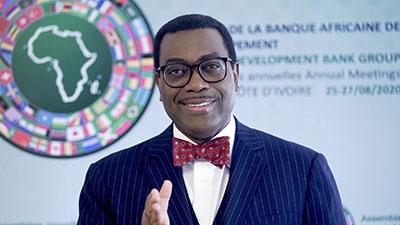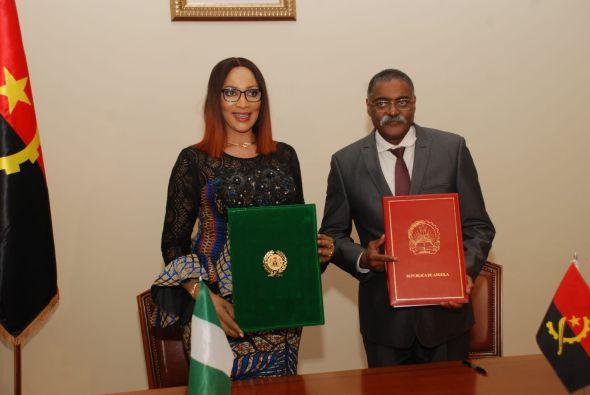The Nigerian Presidency has faulted recent comments by the President of the African Development Bank (AfDB), Dr. Akinwumi Adesina, in which he claimed that Nigeria’s Gross Domestic Product (GDP) per capita has plummeted to $824, worse than it was at independence in 1960.
Adesina made the assertion during his keynote address at the 20th anniversary dinner of investment firm Chapel Hill Denham in Lagos.
Citing economic data, he claimed Nigeria’s GDP per capita stood at $1,847 in 1960 compared to $824 today, arguing that Nigerians are worse off now than 64 years ago.
Adesina further attributed the nation’s economic decline to decades of policy missteps, institutional weaknesses, over-reliance on crude oil exports, and chronic underinvestment in key sectors.
“Nigeria belongs in the league of developed nations. To get there, we must shift our mindset and pursue rapid economic growth,” the AfDB president said.
Comparing Nigeria’s trajectory with that of South Korea, which had a lower GDP per capita than Nigeria in 1960 but has since grown into a global industrial leader, now boasting a per capita income of over $36,000, he said that Nigeria’s continued lag in development is not due to a lack of potential, but a failure to harness it.
“Underdevelopment should not be accepted as our destiny. We must break free from this pattern,” he added.
The AfDB president also urged a radical transformation of Nigeria’s economic structure to ensure global competitiveness and industrialisation by 2050.
According to him, for any reform to succeed, it must be accompanied by strong institutions, policy consistency, and good governance.
He warned that without a credible reform agenda, Nigeria will continue to miss out on global opportunities and fail its growing population.
“The Nigeria of 2050 must be deliberately shaped, developed, corruption-free, and lead the rest of Africa,” he concluded.
However, the Presidency, through a statement released on Monday via the official X (formerly Twitter) account of the Special Adviser to the President on Information and Strategy, Bayo Onanuga, dismissed Adesina’s claim, describing his figures as inaccurate and his conclusion as misleading.
According to Onanuga, available historical data contradict Adesina’s claims. He noted that in 1960, Nigeria’s GDP was $4.2 billion with a population of 44.9 million, resulting in a GDP per capita of just $93, not $1,847 as claimed by the AfDB president.
He explained that Nigeria’s GDP only saw significant growth in the 1970s due to rising oil revenues, and did not exceed $880 in per capita income until 1980.
“Dr. Adesina’s figures are not supported by credible data,” Onanuga stated. “Our country’s GDP per capita did not reach $1,847 until the early 1980s, long after independence.”
While not disputing the need for structural reforms, Onanuga criticized Adesina’s reliance on GDP per capita as a metric for national well-being. He argued that GDP per capita does not reflect improvements in living standards, access to services, or the informal economy’s contribution.
“GDP per capita is a poor indicator of actual living conditions,” he said. “Today, Nigerians enjoy vastly improved access to healthcare, education, infrastructure, and digital technology compared to 1960.”
He cited the rapid growth of the telecommunications sector, contrasting 18,724 analogue phone lines in 1960 with over 200 million mobile users today—as evidence that the quality of life has improved, even if GDP figures do not fully reflect it.
Onanuga further recalled how consultants once advised Vodacom against entering the Nigerian market due to low GDP metrics. Yet, MTN and other telecom operators proved them wrong, reaping billions in revenue.
“Adesina’s analysis lacks depth. His comparison to South Korea is simplistic and fails to account for Nigeria’s complex economic realities. It was a political soundbite, not an objective economic analysis,” the statement read.
The Presidency concluded by affirming Nigeria’s steady economic progress since independence and expressed confidence in the upcoming recalibration of the nation’s GDP by the National Bureau of Statistics (NBS).
“Today, our GDP is at least 50 to 100 times larger than it was in 1960. That is progress,” Onanuga added.
The statement partly read: “Dr Adesina should know that GDP per capita is not the only criterion used to determine whether people live better lives now than in the past. Indeed, it is a poor tool for assessing living standards.
“Its primary usefulness is in giving us the metrics to compare economic output in a country or between countries.
“GDP masks many activities in a country’s economy. It neither discloses wealth distribution or income inequality nor accounts for the informal economy, which experts have said is enormous. It does not account for subsistence farming or income transfer from one family member to another.
Read also: Achimugu still in EFCC custody over unmet bail conditions
“GDP per capita is silent on whether Nigerians in 2025 enjoy better access to healthcare, education, and transportation, such as rail and air transport than in 1960.
“This premise alone suggests why Dr Adesina should not have arrived at his conclusion. Compared with 1960, Nigeria today has more primary, secondary, and tertiary schools. We have more road networks and more medical facilities, private and public.
“We have phenomenal access to telephones. At Independence, we had 18,724 operational phone lines for a population of about 45 million. Over 200 million Nigerians now enjoy near-universal access to mobile phones and digital services, indicating we are better off today than 65 years ago.
“In our country, policymakers know that whatever GDP figure NBS publishes may not capture our economy’s full depth and breadth if it fails to include the informal economy, which some pundits have said may even be more significant than the formal economy. This underscores why Dr Adesina should have considered all aspects of our economy before concluding”.









